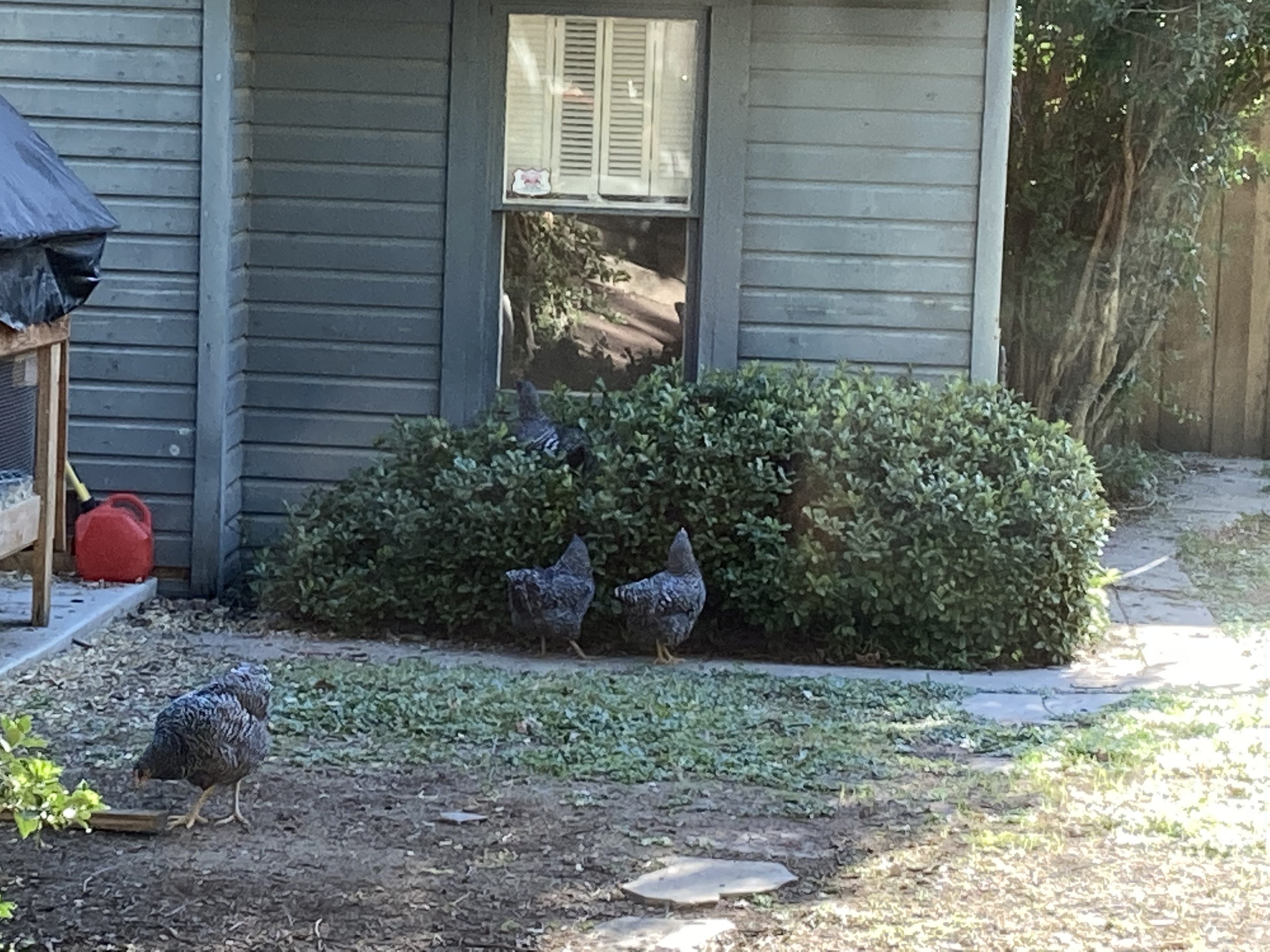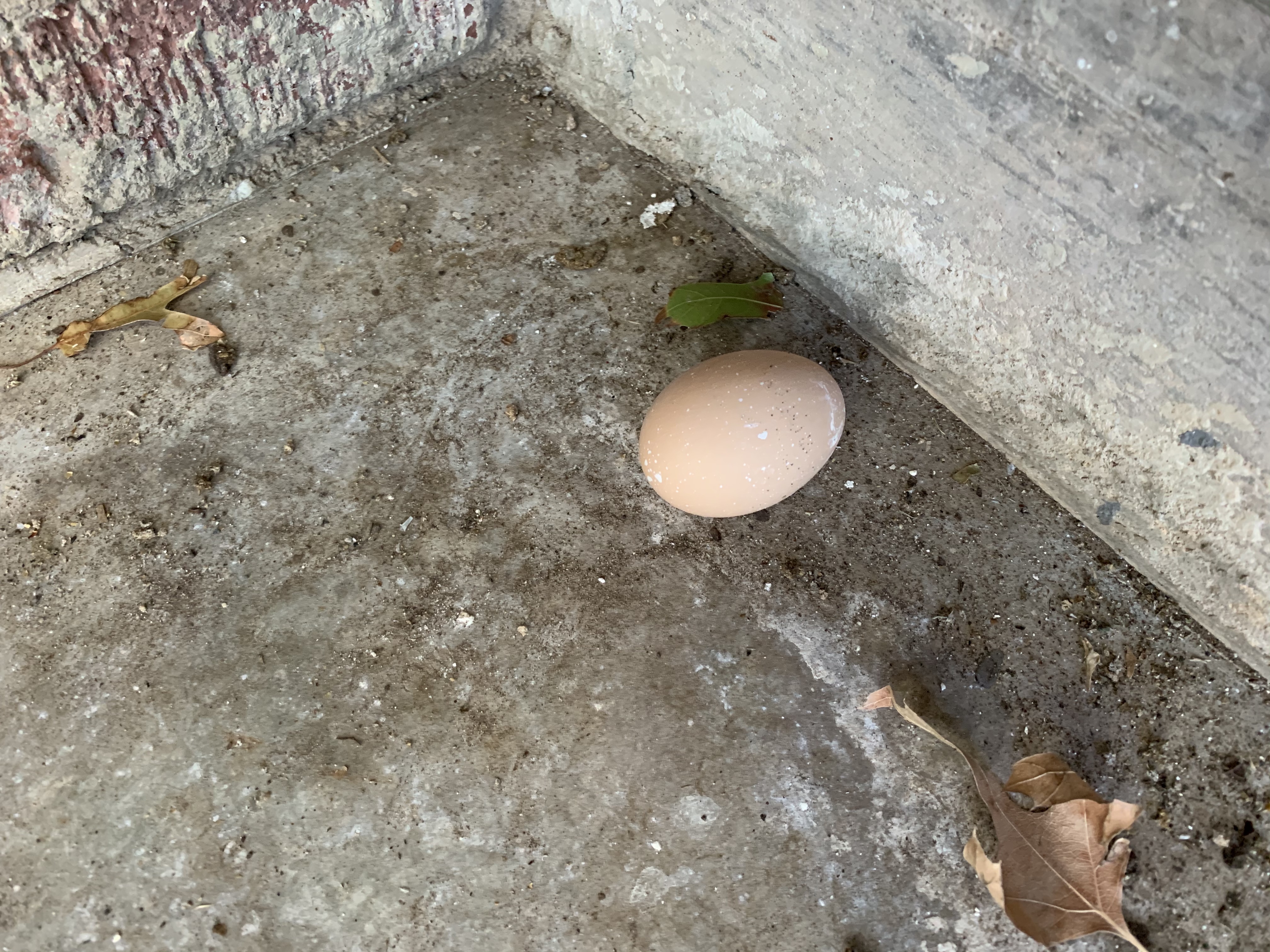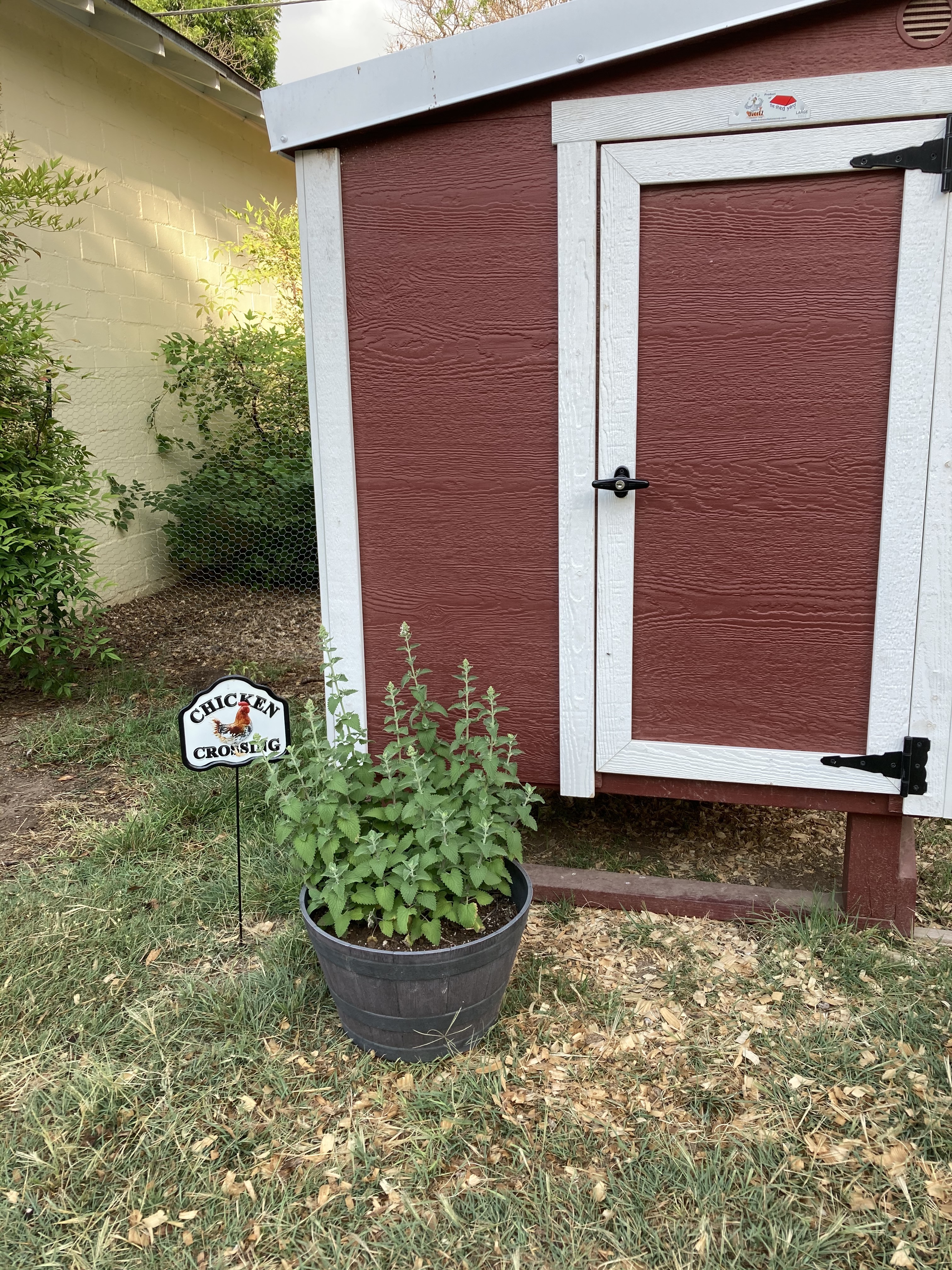There can be many reasons why chickens stop laying eggs. Some of these reasons are beyond your control, such as when chickens stop laying eggs when they reach a certain age or when they pause laying during the winter. However, there are some reasons why chickens stop laying eggs that are within your control and should be corrected to maintain the health of your flock.
Chickens can stop laying eggs in the following situations:
- Coop is excessively dirty
- Nesting boxes are too small
- Too much light in the nesting boxes
- Stressful environmental factors
The good news is that these conditions can be avoided and remedied in the case that they are affecting your chickens. Keep reading to see what factors you can control when it comes to your chickens laying eggs.
1. Coop is excessively dirty
As a general rule, chicken coops should get a deep clean once or twice a year. This means replacing bedding, cleaning off roosting bars, and making sure there are no insects living in the coops.
If you notice there is an odor coming from the coop, such as an ammonia, or see there are many flies, then it’s time to clean the coop, regardless if it’s the twice a year coop cleaning time.
Read 6 Ways to Naturally Get Rid of Flies Around the Chicken Coop for more ideas on how to reduce the fly population in and around the chicken coop.
Make sure the nesting boxes are clean and remove any chicken poop promptly. This will also ensure that your eggs will be clean when they are laid.
I really like using nesting pads in my nest boxes. The chickens can’t easy kick out this material and it provides a soft landing for the eggs. Check out my Recommendations page for a quick review of the nesting pads I use for my chicken coop.
Chickens are animals so they don’t necessarily require the same level of housekeeping in their coop as we do in our homes. They live outside and have wood shavings as bedding and eat off the ground. The problems with laying eggs come into play when their coop is excessively dirty.
2. Nesting boxes are too small
Another reason why chickens can stop laying eggs is that the nesting boxes are too small. A general rule of thumb is that nesting boxes should be 1 foot wide by 1 foot tall by 1 foot wide. This size will accommodate most chickens.
| Type of Breed | Nest Box Dimensions (long x high x deep) |
| Regular | 12″ x 12″ x 12″ |
| Heavy | 14″ x 14″ x 12″ |
| Bantam | 10″ x 12″ x 10″ |
If the nest boxes are too small and uncomfortable for your birds, they might have found a new place to lay their eggs. Look around your backyard to see if they have a secret nesting place. Chickens will lay eggs in some usual places.
When I first got my chickens I thought that it could be likely that they were laying eggs in their favorite bush they would go to during the day to escape the summer heat. I never found any eggs in the bush, but I did find them randomly throughout the yard and on the back porch!


Just because you are not finding eggs in the nesting boxes does not necessarily mean that your chickens have stopped laying eggs; they could just be laying them somewhere else where they have more room.
3. Too much light in the nesting boxes
Chickens require sunlight to trigger their hormones to start the egg laying cycle. This is why chickens will slow down or stop laying eggs altogether during the winter months. For more information on egg laying cycles, read How Many Eggs Can a Chicken Lay in One Day.
However, the nesting boxes should not be bright inside. They should be dimly lit for a chicken to feel comfortable laying her eggs. The reason for this goes back to the chickens’ ancestors who lived in the forests. They needed to make sure they were laying eggs in a secure location, hidden from predators.
An easy way to fix the lighting in the nesting boxes is to provide a top cover for the boxes. A wooden milk crate turned on its side can provide the cozy environment that most chickens require when laying eggs. Some people even add curtains to their nest boxes. Depending on your coop set-up, a simple curtain might be helpful in limiting the light in the nest boxes.
4. Stressful environmental conditions
When there are environmental stressors or changes to a chicken’s environment or routine, they can stop laying eggs. The more stressful the environment, the more likely a chicken is to reduce or totally stop laying eggs.
Try to maintain a similar routine every day with your chickens so they can know what to expect. Let them out of their coop at a regular time, even on weekends. I feed my chickens scratch (or sunflower seeds in the summer) every morning when I let them out of the coop.
On the mornings when Steven lets them out, he doesn’t feed them any treaties, and we hear about it all morning long with chicken squawking. I’m not sure if their egg production on those days is affected, but I definitely know they are not happy with the disruption in their routine!
Make sure your chicken coop is located away from barking dogs or animals trying to get into the coop. Be aware if your coop is located next to a noisy road or garage. It’s understandable that most of us raising backyard chickens don’t live in perfectly quiet neighborhoods, but try to locate your coop in an area of your yard where the chickens can have some peace throughout the day (and night). Take into account that if dogs, raccoons, or any other animal are trying to get into the coop at night, your chickens will be stressed, tired, and possibly have reduced egg production during the day.
Some people will use herbs in their coops to help relax their birds. You can also consider planting the herbs near the coop or outside the chicken run, providing a great treat for the birds to snack on, in addition to the calming effects from the scent.
Some herbs to try with your chickens include lavender, rosemary, thyme, lemon balm, or catmint. An added benefit of planting herbs outside your chicken coop is that some of these plants are natural insect repellents.

It’s important to make sure your coop and nesting boxes are conducive to chickens laying eggs. Providing a safe and clean environment for your chickens allows them the perfect conditions to be happy and healthy, resulting in many eggs!



1 comment
[…] Issues with nesting boxes […]
Comments are closed.